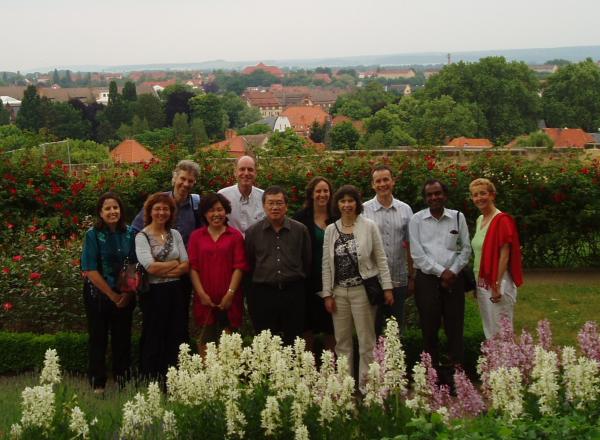International Plant Protection Convention
Dr Mallik Malipatil from Department of Primary Industries Victoria recently travelled to Braunschweig, Germany to attend the annual meeting of the International Plant Protection Convention's Technical Panel on Diagnostic Protocols (TPDP).
Dr Malipatil is a member of TPDP as a discipline lead to cover quality assurance issues with particular reference to entomology and acarology, and is the only member from Australia. The panel meets once a year and comprises seven members serving as discipline leads as well as informally representing major regions, and one member serving as steward - functioning as a link between TPDP and Standards Committee (SC).
Major tasks of the TPDP include producing diagnostic protocols for specific pests identifying priorities for specific protocols to be developed and submitted to the Standards Committee (i.e. availability of existing regional standards and/or protocols used by individual countries, suggestions for new protocols and criteria for clarification and agreement on diagnosis) determining the mechanism for production of protocols and any rules of procedure; proposing flexibility within specific protocols for a range of methodologies for different situations. Diagnostic protocols (and their issues) discussed and resolved at this meeting will directly contribute towards improving Australia's capability in rapid identification of emergency plant pests, and to the CRCNPB objective ‘preparedness for and prevention of establishment of nationally significant target organisms...'
Dr Malipatil's technical specialist role and participation in this international panel and meeting provided him an insight into the processes and issues associated with the diagnostic protocols of exotic pests at an international level. This will be used for improving Australia's preparedness for exotic incursions and ensure that protocols developed in Australia meet international standards.
This meeting also provided Dr Malipatil's with international exposure as well as opportunities to develop interactions and collaborations with international experts in areas including quality assurance issues relating to diagnostic protocols of entomological pests in particular.
The various quality assurance issues related to diagnostic protocols (such as validation of methods, sensitivity/specificity/reliability, combination of methods and ring testing) discussed at this meeting are of considerable relevance and interest to plant health diagnostic activities in Australia, including those of Subcommittee on Plant Health Diagnostic Standards (SPHDS). In the long term, SPHDS aims to establish, implement and monitor professional and technical standards within Australia's plant health diagnostic laboratories through the development and maintenance of an accreditation system, and national diagnostic standards for emergency plant pests.
The expected outcomes/benefits for the Australian Plant Biosecurity System are via the development of an improved overall capability in producing diagnostic protocols for specific pests of quarantine significance to Australia; improved mechanisms in identifying priorities for specific protocols to be developed and submitted to the Standards Committee; improved mechanisms for production of protocols and any rules of procedure; and quality assurance issues relating to diagnostic protocols being / to be developed.
Dr Malipatil said the meeting would provide opportunities in activities relating to the development of diagnostic protocols for major exotic threats, as well as long-term collaboration of the CRCNPB with relevant plant health bodies in overseas countries to develop plant health priorities.

Image left to right
Ana Lia Tera, Francoise Petter (EPPO), Jens Unger, Linping Yin, Johannes de Gryter, Keng-Yeang Lum, Sonya Hammons (Secretariat), Jane Chard (Secretariat), Gerard Clover, Mali Malipatil, Petra Muller.
Read Dr Malipatil's full travel report.
TRAVEL DETAILS
MALIPATILM
When: June 2008
Location: Braunschweig, Germany
Summary:
International Plant Protection Convention's Technical Panel on Diagnostic Protocols

